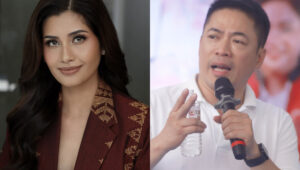While much of the world was riveted last week by the nearly simultaneous events of a gunman assassinating the Russian ambassador to Turkey at an art exhibit in Ankara, and a suspected terrorist plowing a lorry through a crowded Christmas market in Berlin, killing 12, yet another disturbing event was happening in another part of Europe.
In Zurich, an attacker opened fire on about a dozen worshippers inside a mosque. Three men were hurt, none fatally. But that the shooting happened within hours of the Berlin and Ankara incidents—at a time of other distressing world news such as the carnage in Aleppo, and China’s militarization of contested islands in the South China Sea—only added to a picture of a world on fire.
Even on its last days, 2016 is apparently not yet through delivering shocks and chills. The last time a year amounted to this much seismic consequence and widespread anxiety was 2001, when 9/11 happened and the world changed forever. No one witnessing the appalling sight on television then would doubt the import of the moment, or would ever forget where or what he or she was doing that day.
Years from now, Americans might similarly look back on November 2016 and instantly recall the moment they heard the news that they had a new president in Donald Trump. That the blustering business mogul and TV reality star would become the world’s most powerful man with his finger on America’s nuclear arsenal was, for a long time—in fact, for the entire duration of his presidential run right up to Election Day—considered an unbelievable prospect, the stuff of late-night jokes.
But Trump had an ace: He rode a tidal wave of antiestablishment resentment with his “drain the swamp” rabble-rousing, referring to the dank politics of Washington, even as his views on everything else—from immigration to women to world relations to the plain value of truth and honesty in his pronouncements—constituted the swampiest, crudest rhetoric ever heard from a modern politician not only in America, but on the world stage.
But it made him win—a victory that has only put the world, once again, on uncertain ground. By virtue of his new office, the man who called Mexican immigrants “rapists” and “criminals,” whose serial assaults on women are well-documented, whose rise has been celebrated by neo-Nazis with Hitler salutes, is now the virtual alpha male in an international rogues’ gallery of demagogic politicians, from Europe’s far-right leaders to the old reliables like Russia’s Vladimir Putin (who, according to American intelligence agencies, likely had a hand in Trump’s election), to the British parliamentarians behind the shock Brexit vote.
In Asia, that mantle has fallen on President Duterte, who has proudly and publicly allied himself with Putin and the authoritarian Chinese government while declaring an end to special relations with the United States. His own campaign of “shock and awe” against the turgid state of Philippine politics has, so far, resulted in nearly 6,000 deaths from summary killings, unleashed by his harsh imprecations against drug addicts and pushers; as well as by-now-regular rambling perorations that end up disparaging the institutions that hold the republic together.
Most recently, he said declaring martial law should be the sole prerogative of the president, without oversight by Congress or the Supreme Court—exactly the kind of dangerous power-hoarding the 1987 Constitution built safeguards against in the wake of the Marcos dictatorship.
Mr. Duterte is not even a full year into his six-year term, so the verdict on his eventual legacy is still far off. But his rise to power will mark 2016 as, at the very least, a year hard to forget in Philippine history—as it is, perhaps, for the rest of the world struggling with their own burden of wrenching changes brought about by this watershed year. Grim thoughts for Christmas Eve.


